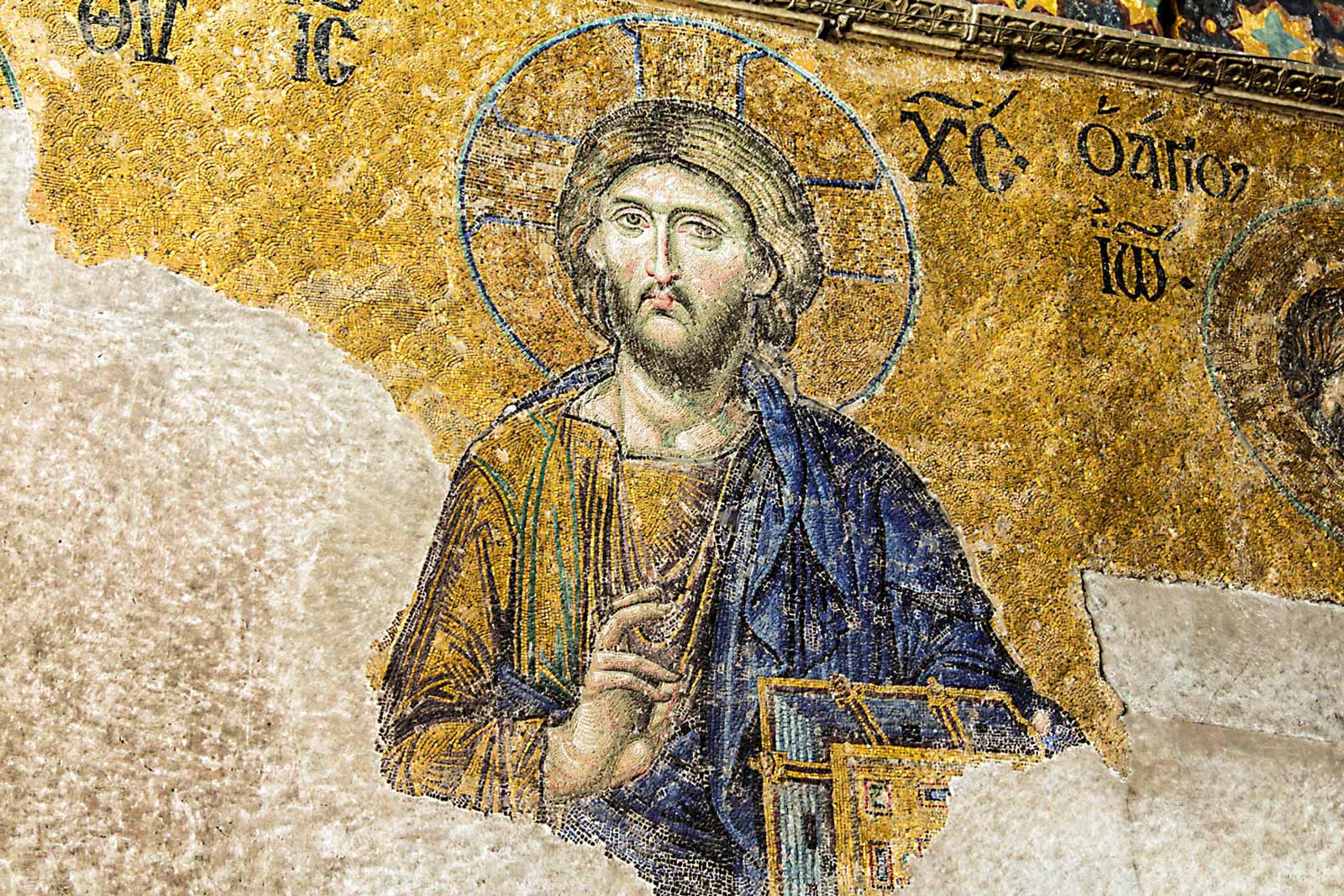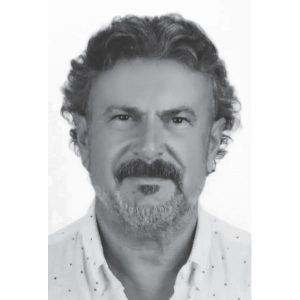Secularism, Democracy or Theocracy?
Sep 2, 2022

“Our nation is now responsible for its future, not the past.”
Mustafa Kemal Atatürk
Following the defeat of the Ottoman Empire and its ally Germany in the 1st World War, Anatolian lands were conquered by the winner states of the war with the Treaty of Sèvres signed in 1920. With the War of Independence initiated by Mustafa Kemal and his fellows, occupying forces were expelled from Anatolia and the borders of the homeland were redrawn with the Treaty of Lausanne signed on July 24, 1923, the borders of the homeland were redrawn and the Treaty of Sèvres, which meant surrender, was invalidated.
When Mustafa Kemal proclaimed the establishment of the Republic on October 29, 1923, the gates of a new era were opened for the Turkish nation. With the amendment made in the Constitution on February 5, 1937, it was admitted that the state was a republican, nationalist, populist, statist, secular and revolutionary state. Secularism principle enshrined by the 1937 Constitution Act constitutes the basis of an honorable life style based on reason, science and rule of law principle in addition to being the guarantee of freedom of religion, conscience and worship.
The Constitution, which is still in force, states that the Republic of Türkiye is a democratic, secular and social state of law; however, the principle of secularism is not properly implemented in our country. Under AKP governance, the ruling party since 2002, from education to politics all areas of life have taken the religion as a reference while with the Presidential Government System, adopted on a result of the constitution referendum conducted on April 16, 2012, where religion had more impact state affairs and social sphere beyond its impact during the Ottoman Empire and secular regime started giving way to theocratic order.
What is Theocratic order?
In fact, theocratic order is a regime of the Medieval age. It is based on the belief that the political power belongs to God and the ruling party or the power is the representative of God on Earth. The country and social life are governed by religious rules, fatwas, verses and hadiths.
Before the 1789 French Revolution, which was made by the poor and the peasants, the King was considered the representative of God on Earth in European countries while it was the Sultan in the Ottoman Empire. With the policies applied within the scope of revolution, a major break was experienced in Europe, and especially in France on the interruption of the church, which is considered a divine institution, to the social and political life. Economic and social development of the Western countries gained speed.
In Türkiye, 148 years after the French Revolution, religion was removed from the public realm with the addition of secularism principle to the constitution at the request of Mustafa Kemal Atatürk in 1937. While secularism was put into effect through the revolution when the people in France became aware of the harmful impacts of the church and religion on the public realm and revolted, in Türkiye it has been added to the constitution without the demand of the people, just with a top-down decision.
Considering that the literacy rate of the people in Türkiye was 10% between 1923 and 1940, the education system was under the control of the German, Italian and French forces and the education language in the Ottoman was Arabic, we may understand why the people were uneducated.
Therefore, the questions like “What is the republican regime?” “What is secularism principle?” and “Is democracy possible without secularism? Which one is the prerequisite for the other?” is not known by the people of that time. Even today, a great majority of the people are not informed about it. The reason for that can be sought in the education system which has been changed frequently.
In the first years of the Republic, the education was started from the rural area with the Village Institutes established in 1940 and designed as scientific and contemporary education institutes. In their first years, as the number of religion classes are less and coeducation is given at the Village Institutes, they were highly criticized by the landlords, the religious section and the members of parliament who represent that section of people.
The parents of the students were pressured and the female students were prevented with the claim that the religion is lost there. Poor and uneducated religious parents had to submit and did not send their daughters to the schools. Nonetheless, the education at the Village Institutes continued until 1946. In the multi-party era ruled by the Democrat Party, Village Institutes were first transformed into teacher schools, and then they were closed by Prime Minister Adnan Menderes in 1954.
After the Village Institutes were closed, education became mostly based on religion. The number of Religious Vocational Schools increased with the AKP in power since 2002 and the number of other types of schools decreased.
How did theocratic order get started?
People wanted!
As a result of the failure to explain to the public that the amendment to be made with the referendum held on April 16, 2017, was not for the benefit of the country, Türkiye switched to the Presidential Government System when the 18 new constitutional articles accepted at the referendum with the 51,41% of the votes.
Why did they explain the truth to the public before the voting?
AKP, which is a right-wing party, did some good things in the first years of their service when they came to the power in 2002: the economy grew with the increasing number of investments thanks to good relations with EU and national income which was 3,600 USD in 2002 became 11,000 USD.
The majority of the citizens in Türkiye, who were right-wing supporters, had a growing trust in AKP government. AKP wanted to make an amendment at the Constitution after the Presidency election in 2014. They worked hard for this plan and their arguments were discussed by some professors (!) at TV programs for months. Before the Voting, the citizens were convinced that the dominant and rich discourse of the ruling party was right compared to the weak discourse of the opposition parties.
What is Secularism?
Secularism defines the relationship between the religion and state and makes a distinction between them. Religious rules are eliminated from the state affairs and politics. Secularism aims a political and social order independent of the pressure of religious organizations by limiting the influence of religion on political and public life.
Why do we need a Secular Turkish Republic?
Mustafa Kemal Atatürk considered secularism after the declaration of the Republic because Anatolia was conquered as a result of the Treaty of Sèvres and the last Ottoman Emperor, who lived in Istanbul conquered by the English, collaborated with the occupying forces and also used religion as a weapon on the army who fought with them.
Sait Molla, who was the head of the Society for the Rise of Islam, which was against the War of Independence in Anatolia, led by Mustafa Kemal, and also a spy of the British Society of Adversaries collaborated with the occupiers and threw leaflets to the Anatolian cities with the Greek airplanes saying that “These rebels, Mustafa Kemal and National Forces, should be caught and eliminated as soon as possible. This is a religious duty for all of us.” In addition to religious discourse, Ethem the Circassian who did not recognize Grand National Assembly of Türkiye and collaborated with the Istanbul government and then took refuge in the Greek forces and Atıf Hoca of Iskilip who worked against the National Forces all exploited religion.
Secularism is a prerequisite for democracy and the basis of many rights
Everyone has the freedom to believe in and to think what they want, to have a political opinion, and to do or not to do the necessities of their religion.
The principles of Secular Republic rejected religious judgements in public realm and provided assurance for human rights, considering religion is an individual choice.
When we talk about secularism, we should quote Prof. Dr. Ahmet Taner Kışlalı. Kışlalı, who is a great defender of Mustafa Kemal Atatürk, was killed in 1999 because of his ideas and opinions. May he rest in peace.
Let’s see what Kışlalı told on secularism in 1996:
“What really matters is not the laws, but the experiences!
First, secularism came to Sweden and then democracy.
In Türkiye, first democracy came and then secularism followed.
Until the “Enlightenment Revolution” which includes secularism, Christian sphere was in darkness. Because the beliefs and the opinions were under pressure.
How could democracy upspring under these conditions?
Some say, “Defending secularism does not mean defending democracy.” They are right somehow!
Because secularism in nor democracy but it is the “prerequisite for democracy.” It is a sin qua non.
Is there any country which denies secularism but reaches democracy? Is there any society which reach democracy although they depend on religion, not science and reason?
A regime which does not approve secularism is a regime where “the only truth” is accepted without discussion. It is a form of regime where even a “single interpretation” of a single sect of a single religion is considered valid.
Who decides what that “the only truth” is?
Is it the public?
Or the ones who claim that they know everything about that belief?
Democracy never comes after secularism in any society.
And is there any society where there is democracy but no secularism?
Democracy is not the prerequisite for secularism; secularism is the prerequisite for democracy…Because if secularism is not adopted; the public cannot be ruled on behalf of the people, it is ruled on behalf of God.
Not every secular society necessarily has democracy; but there can be no democracy in a society without secularism!
If you have been able to preserve secularism, then it means you have also kept your hope alive for reaching the democracy again that you have lost. However, if you have lost secularism, then you have already lost democracy.
And, you have already lost your hope for switching to democracy once again. The tricks of the new mandataries cannot change this reality!”
Get more of Elevator World. Sign up for our free e-newsletter.









